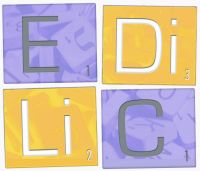Speaker
Description
This presentation will report on a survey of students in a teacher training program at a major Australian university on their attitudes towards model selection and teaching approaches in pronunciation teaching to be carried out in the first half of 2025. Pronunciation teaching has traditionally been underrepresented in Teaching English to Speakers of Other Languages (TESOL) teacher training courses. This is due in part to native speakerism which devalues the accents of those who speak English as an additional language. The nativist approach refers to the standard accents of Britian and North America as the teaching model, while an alternative intelligibility approach refers to a focus on aspects of pronunciation which impede understanding (Levis, 2018). Alternative teaching approaches also focus on intelligibility in specific varieties of outer and expanding circle Englishes (e.g. Low, 2014; Thir, 2016). However, there is little research which investigates how future English language teachers approach these alternative approaches to pronunciation teaching. It aims to contribute to the knowledge on how to train teachers to better support linguistically diverse students by moving away from a nativist approach to English language teacher training.
Content/contenu/Inhalt 2
Diese Studie wird über eine Umfrage unter Lehramtsstudierenden an einer australischen Universität berichten, die darauf ausgelegt war, ihre Einstellungen zu Aussprachemodellen im Englischunterricht besser zu verstehen. Die Umfrage wird in der ersten Jahreshälfte 2025 durchgeführt. Ausspracheunterricht ist in der Lehrerausbildung im Rahmen von „Teaching English to Speakers of Other Languages (TESOL)“ Studiengängen traditionell unterrepräsentiert. Dies ist zum Teil auf den „Native Speakerism“ zurückzuführen, der die Aussprache von Lehrer:innen, die Englisch als Zweit- oder Fremdsprache gelernt haben, abwertet. Diese Herangehensweise wird mehr und mehr hinterfragt und alternative Lehrmodelle konzentrieren sich auf jene Aspekte der Aussprache, die das Verständnis behindern (Levis, 2018). Es gibt jedoch wenig Forschung, die untersucht, wie zukünftige Englischlehrer:innen zu diesen alternativen Formen des Ausspracheunterrichtes stehen. Der vorgeschlagene Vortrag schliesst diese Luecke. Das Ziel ist angehende Lehrer:innen zu unterstützen ueber den nativistischen Ansatz im TESOL-Unterricht hinauszugehen.
References
Levis, J. M. (2018). Intelligibility, Oral Communication, and the Teaching of Pronunciation. Cambridge University Press. https://doi.org/10.1017/9781108241564
Low, E. L. (2014). Pronunciation for English As an International Language : From Research to Practice. Taylor & Francis Group. http://ebookcentral.proquest.com/lib/mqu/detail.action?docID=1783950
Thir, V. (2016). Rethinking pronunciation teaching in teacher education from an ELF perspective. Vienna English Working Papers, 25, 45-73.
| Title/ titre/Titel 2 | Ausprachunterricht in „Teaching English to Speakers of Other Languages (TESOL)" |
|---|

